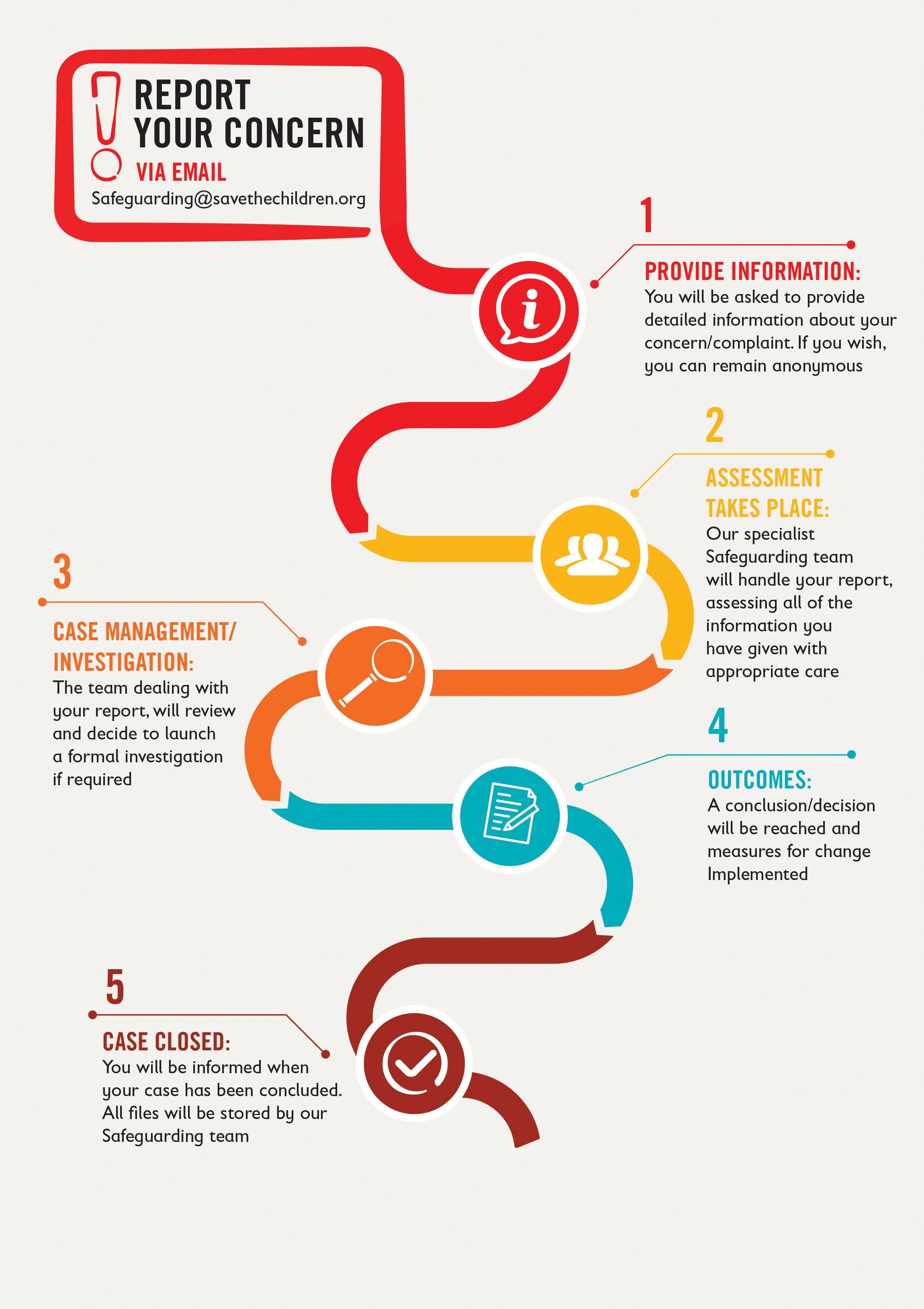Whether we are responding to a humanitarian crisis in Yemen, running health programmes in Ethiopia, or campaigning to prevent child marriage across the world, safeguarding children and adults in the communities we work in and our staff is always our first priority. We want to ensure that everyone who comes into contact with our organisation is safe. We call this area of our work ‘Safeguarding’.
Our safeguarding commitment is to ensure that children and adults are protected from both deliberate and accidental harm and abuse caused by Save the Children staff and other representatives.
Have a safeguarding concern? Find out how to report it here.
The key to safeguarding is prevention and making reporting concerns as easy as possible for children, parents, community members and staff. Our reporting strategies are diverse, and are often developed with children and the community to ensure that they work for the particular setting, program and culture.
We employ safeguarding specialists around the world who work closely with children and adults in the communities we support and our staff to ensure that their feedback on our programmes, approach and behaviour is listened to, and acted on. These specialists also support leadership and other teams to build a safe environment and strong safeguarding culture in our programmes, they conduct awareness-raising campaigns on safeguarding and they work to prevent the abuse of children and adults. These specialists also lead investigations of reported safeguarding concerns and manage how reports are handled.
We also have people trained to lead on investigating reported safeguarding concerns and to manage how reports are handled. We have Safeguarding Directors who are part of a Global Safeguarding Team and a Safeguarding Trustee.
We have a number of policies in place across our organisation that help us deliver our commitment to safeguarding. Under the Safeguarding Framework we have the following policies to protect children, adults and our employees: Child Safeguarding Policy, Protection from Sexual Exploitation and Abuse Policy (PSEA), Code of Conduct, Anti-Harassment, Intimidation and Bullying Policy. These underpin everything we do. We also adhere to the UN Secretary General's Bulletin Special measures for protection from sexual exploitation and abuse and other international standards.
PSEA Procedure ' Protection from Sexual Exploitation & Abuse
We do not tolerate any form of abuse or misconduct such as sexual exploitation and abuse, harassment, intimidation and bullying by our staff, and take all concerns seriously.
If you have a safeguarding concern related to Save the Children, our staff or representatives, or a safeguarding concern related to a child, please tell us immediately and report it.
Please email safeguarding@savethechildren.org.
As soon as concerns are received, we take action. We have a network of senior safeguarding specialists globally who ensure that all concerns are confidentially, rapidly and effectively responded to – no matter how small. After any immediate steps to look after the survivor, we investigate, and then an investigation report is shared with our Human Resources colleagues, who ensure that robust disciplinary action is taken against any perpetrators.
Where individuals have been found to have significantly breached our safeguarding policies, they will be dismissed, referred to the Police where possible, and they are immediately placed on a 'do not rehire' notice – which means they will not be rehired by Save the Children, anywhere in the world. We are also part of the inter-agency Misconduct Disclosure Scheme, which means that we will disclose this HR information if ever asked to give a reference, limiting the likelihood that a perpetrator will get a job at another charity.
